|
Guinness World Records 2013

The Hitchhiker's Guide To The Galaxy

The Dirk Gently Omnibus

Non-Stop

The Tiger in the Smoke

Band of Brothers

Ricin!: The Inside Story of the Terror Plot That Never Was

Basingstoke Boy: The Autobiography

vN

iD

The Mammoth Book of Mindblowing SF

The Complete Robot (Robot Series)

Foundation (The Foundation Series)

Foundation and Empire (The Foundation Series)

Second Foundation (The Foundation Series)

Forward the Foundation

Foundation and Earth

Foundation's Edge

Prelude to Foundation (The Foundation Series)

The Handmaid's Tale (Contemporary Classics)

Thierry Henry

Pride and Prejudice and Zombies: The Classic Regency Romance-now with Ultraviolent Zombie Mayhem!

The Drowned World

Excession

The Algebraist

NOD

Bailout: How Washington Abandoned Main Street While Rescuing Wall Street

Spy Princess: The Life of Noor Inayat Khan

The Principles of Beautiful Web Design

Foundation and Chaos (Second Foundation Trilogy S.)

Hull Zero Three

The Teleportation Accident

Dark Eden

Stalingrad

Berlin: The Downfall, 1945

Foundation's Fear (Second Foundation Trilogy S.)

Stillness and Speed: My Story

Zoo City

Secret War Heroes: The Men of Special Operations Executive

Fahrenheit 451 (Flamingo Modern Classics)

The Illustrated Man (Flamingo Modern Classics)

Something Wicked This Way Comes (Fantasy Masterworks)

Oxford Dictionary of Humorous Quotations

Intellectual Impostures

Foundation's Triumph (Second Foundation Trilogy S.)

The Ascent Of Man
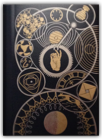
Dawn of the Dumb: Dispatches from the Idiotic Frontline

The Zombie Survival Guide: Complete Protection from the Living Dead

World War Z

Notes From a Small Island

Neither Here Nor There: Travels in Europe

Notes from a Big Country

A Short History of Nearly Everything

At Home: A Short History of Private Life

Pommies: England Cricket Through an Australian Lens

The Master And Margarita

The Yiddish Policemen's Union

The Man Who Was Thursday: A Nightmare (Twentieth Century Classics)

Empire State

Modern Classics The Death Of Grass

The Cardinal of the Kremlin

Rainbow Six

The Bear and the Dragon

Red Rabbit

The City and the Stars (Millennium SF Masterworks S)

This Is Serbia Calling: Rock 'n' Roll Radio and Belgrade's Underground Resistance (Five Star Fiction S.)

Life After God

Why Evolution is True

Shake Hands with the Devil: The Failure of Humanity in Rwanda

The Origin of Species

Flat Earth News: An Award-winning Reporter Exposes Falsehood, Distortion and Propaganda in the Global Media

Climbing Mount Improbable

Greatest Show on Earth

A Devil's Chaplain: Selected Writings

The Selfish Gene

The Blind Watchmaker

The God Delusion

The Oxford Book of Modern Science Writing

Serenity: Based on the Screenplay by Joss Whedon ("Serenity" S.)

The Second Coming of Steve Jobs

The Man in the High Castle (Penguin Modern Classics)

Ubik

Amazing...but False!: Hundreds of Facts You Thought Were True, But Aren't
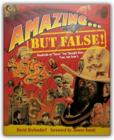
The Mammoth Book of the Best Short SF Novels

In The Name Of The Rose

Ideas and Opinions

Deathbird Stories

Eleven Minutes Late: A Train Journey to the Soul of Britain

Trick or Treatment?: Alternative Medicine on Trial

Finding Serenity: Anti-Heroes, Lost Shepherds and Space Hookers in Joss Whedon's Firefly

Adobe PhotoShop CS for Photographers: Professional Image Editor's Guide to the Creative Use of Photoshop for the Mac and PC

Man in the Empty Suit

The year he turns 39, though, the party takes a stressful turn for the worse. Before he even makes it into the grand ballroom for a drink he encounters the body of his forty-year-old self, dead of a gunshot wound to the head. As the older versions of himself at the party point out, the onus is on him to figure out what went wrong—he has one year to stop himself from being murdered, or they're all goners. As he follows clues that he may or may not have willingly left for himself, he discovers rampant paranoia and suspicion among his younger selves, and a frightening conspiracy among the Elders. Most complicated of all is a haunting woman possibly named Lily who turns up at the party this year, the first person besides himself he's ever seen at the party. For the first time, he has something to lose. Here's hoping he can save some version of his own life. Don't You Have Time to Think?

What Do You Care What Other People Think?: Further Adventures of a Curious Character

Six Easy Pieces: Fundamentals of Physics Explained (Penguin Press Science)

Six Not-so-easy Pieces: Einstein's Relativity, Symmetry and Space-time (Penguin Press Science S.)

One Bullet Away: The Making of a Marine Officer

Delusions of Gender: The Real Science Behind Sex Differences

SOE: An Outline History of the Special Operations Executive

The SOE spent much time engaged in diversionary activity. It was said that each day Hitler spent at least half an hour considering Abwehr reports on SOE activities and that he was never entirely sure of their place in the overall framework of Allied plans. But perhaps the greatest success of the SOE was the way it managed to foster a mentality of resistance in all areas of Nazi occupation. Populations that might otherwise have settled for an easy life were galvanised into a permanent state of mini-rebellion, thereby ensuring that the occupying forces could never relax for a moment. Foot is the ideal guide to walk you through this outfit of which much has been spoken but little is known, sorting out the fact from the fiction but he still finding ample room for storytelling. Your perspective on World War Two will never be quite the same again after reading this. — John Crace Life

ReWork: Change the Way You Work Forever

Seth Godin is the author of Linchpin, Tribes, The Dip, Purple Cow, All Marketers Are Liars, and Permission Marketing, as well as other international bestsellers. He is consistently one of the 25 most widely read bloggers in the English language. Read his exclusive Amazon guest review of Rework: This book will make you uncomfortable. Depending on what you do all day, it might make you extremely uncomfortable. That's a very good thing, because you deserve it. We all do. Jason and David have broken all the rules and won. Again and again they've demonstrated that the regular way isn't necessarily the right way. They just don't say it, they do it. And they do it better than just about anyone has any right to expect. This book is short, fast, sharp and ready to make a difference. It takes no prisoners, spares no quarter, and gives you no place to hide, all at the same time. There, my review is almost as long as the first chapter of the book. I can't imagine what possible excuse you can dream up for not buying this book for every single person you work with, right now. Stop reading the review. Buy the book.—Seth Godin American Gods: The Author's Preferred Text

Colossus: Bletchley Park's Greatest Secret

On the Map: Why the World Looks the Way it Does

Just My Type: A Book About Fonts

The Dynasties of China

Cobweb

The World of Karl Pilkington

Neuromancer

So You Think You Know the "Simpsons"?

Spitfire: The Illustrated Biography

Bad Science

Bad Pharma: How Drug Companies Mislead Doctors and Harm Patients. by Ben Goldacre

Lord of the Flies

The Princess Bride

Sammy's Hill

The Mismeasure of Man

Why People Believe Weird Things: Pseudoscience, Superstition, and Other Confusions of Our Time

Hackers and Painters: Essays on the Art of Programming

Parasite

Politika (Tom Clancy's Power Plays S.)

Stamping Butterflies (Gollancz SF S.)

Changing Planes: Armchair Travel for the Mind

On Warne Pa

The Neutronium Alchemist (Night's Dawn Trilogy)

The Confederation Handbook

As a "non-fiction" companion volume, The Confederation Handbook maps out this future galaxy's joyous complications. Technologies: the affinity gene allowing telepathic man/machine communication; neural-nanonics implants which link your brain to the net; intelligent voidhawk and blackhawk spacecraft; forbidden antimatter weapons; and space drives. People: human Adamists who reject the affinity gene; Edenists whose affinity links offer a "real" afterlife that replaces religion, struggling colonists everywhere; and three very different alien species—the Tyrathca, Kiint and Jiciro. Places: crowded old Earth with its O'Neill halo of orbital installations; communist Mars; utopian Edenist habitats mining helium-3 fusion fuel from gas-giant planets; quirkily various colony worlds; and the mysterious alien wreckage of the Ruin Ring. The Handbook carefully, almost too carefully, avoids spoiler revelations about the apocalyptic action of Night's Dawn. As in those books, its Timeline stops before the main story begins, and—besides names of "Possessors" in a cast list slightly updated from The Naked God's—the superpowered returned dead who threaten the entire Federation aren't mentioned at all. Readers nervous of SF terminology may find this a useful guide to the trilogy's huge, exhilarating blend of roller-coaster action and ghost-train chills. —David Langford Fallen Dragon

Centuries hence, despite faster-than-light travel, human interstellar exploration is stagnating. There's not enough money in it for the vast controlling companies such as Zantiu-Braun, now reduced to extracting profits via "asset realisation"—plundering established colonies that can't withstand Earth's superior weapons tech. Lawrence Newton's childhood dreams were all about space exploration. Now he's just another Z-B squaddie, trained to use the feared, half-alive "Skin" combat biosuits, which offer super-muscles, armour and massive firepower, all queasily hooked into the wearer's bloodstream and nervous system. Commanding a platoon in Z-B's raid on planet Thallspring, Lawrence has secret plans to make off with a rumoured alien treasure. But Thallspring resistance is unexpectedly tough, thanks to locals such as Denise Ebourn who have mysterious access to neuro-electronic subversion gear far subtler and perhaps more dangerous than Skin. Meanwhile, how fictional are the stories Denise tells her school pupils, about a fabled Empire that ruled our galaxy for a million years before becoming... something else? Hamilton excels at violent action, but not with the dreadful simplicity of space opera. Despite his role in the explosive Thallspring situation, Lawrence genuinely hopes to avoid bloodshed—while Denise's lofty idealism results in chilling atrocities, and even Z-B may be less cruel and monolithic than it seems. A breakneck interstellar chase leads to a satisfying finale and an unexpected romantic twist. This is solid, meaty SF entertainment. —David Langford Misspent Youth

The rejuvenation treatment, developed by federal Europe to impress laggard America, is so complex and expensive that only one person every 18 months can receive it. Jeff is the first because he's a celebrity inventor, father of the "datasphere" which superseded the Internet. Family upheavals follow. An "arrangement" with his much younger, still beautiful wife Sue lets her enjoy lovers while the aged Jeff turns a blind eye: now things are different. Meanwhile their 18-year-old son Tim is struggling ineptly with teenage sexual pangs and the impossibility of understanding girls. All part of growing up, but Jeff's renewed youth brings farcical complications. It's not just that Jeff now fancies Sue again. He can't resist even younger women. An early one-night stand is publicised all over the datasphere. Embarrassment escalates when he's seduced by the granddaughter of a long-time pub companion. Worse, several of Tim's ravishing female schoolmates are interested in Jeff the celebrity stud. The dishiest of all is Tim's latest, most hopelessly adoring girlfriend. Can it be coincidence that the action mostly happens in Rutland? This comedy of embarrassments and revelations has a darker background: Europe is plagued by separatist movements whose terrorist habits make the old IRA look like pussycats. The turning point in Jeff's tangled relationships comes when he attends a London conference surrounded by protest that breeds riot—with Tim among the protesters. A foreshadowed twist leads to a finale that mixes cynicism with sentiment. En route Misspent Youth is a lot of fun. —David Langford Pandora's Star

The Naked God (Night's Dawn Trilogy)

The Reality Dysfunction (Night's Dawn Trilogy)

It is the late 26th century and humanity's thriving culture spans 200 planets. The usual squabbles and disagreements continue, but generally everyone gets along and lives well as humanity's outward expansion continues apace. On newly colonized Lalonde, though, a strange force emerges from the jungle, lobotomizing people and turning them into super-powered soldiers. At the same time, the story of Joshua Calvert emerges. He's the young captain of a trading ship, who innocently travels to Lalonde and becomes embroiled in the mysteries there. Both threads have plenty of action and exotic scenery. Peter Hamilton's descriptive prose, particularly in action sequences, is breathtaking (and scientifically accurate), creating a dramatic backdrop for a story where the stakes keep getting higher, the villains keep growing more evil and the heroes keep surviving—but only just. Space-opera fans will enjoy this deftly written and engaging novel. Those who feel they don't like the genre might give this example a try to see just how unhacky, ungrinding, sweet-smelling, and robust it can be. —Brooks Peck Judas Unchained

Humanity's interstellar Commonwealth is in serious trouble. Thirteen of its hundreds of worlds (linked by wormholes and high-speed trains) were lost to a first mass attack by the insanely hostile alien Primes. The controlling Prime intelligence, MorningLightMountain, can imagine no way of dealing with first contact but genocide—and has the resources to do it. Amid political and personal chaos, it's becoming clear that the war was arranged by a third party. For centuries, only the fanatical, outlawed Guardians cult believed in this mysterious influence called the Starflyer. New evidence emerges, only to vanish again. Key figures are destroyed by near-invincible assassins crammed with inbuilt "wetwired" weaponry. One determined detective is on the track, but she faces massive political opposition. The multi-stranded action follows many criss-crossing human stories, with fights, pursuits, quests, deaths, resurrections, exotic landscapes and armaments, good sex, and several interesting aliens. Betrayals are frequent, thanks to brainwashed Starflyer agents in positions of trust. Only the Guardians have a scheme to deal with the Starflyer itself—a grandiose strategy known as "the planet's revenge"—but no one trusts those crazy cultists… In space, the arms race becomes dizzying, with Prime doomsday weapons used against suns while frantic human research leads to "quantumbusters" so appalling that there's serious moral debate about their use. Can we face the guilt of total genocide, even against a horror like MorningLightMountain? Or is there some way to force this psychopathic genie back into the bottle? The action climaxes in a long, exhilarating chase sequence spiced with ultra-violent skirmishing as the Starflyer comes into the open at last. Stormgliding, an extreme sport introduced in book one, becomes vital to the race against time. Meanwhile, rival starships with different plans chase one another to the Prime system. Hamilton delivers the expected multiple payoffs with suitable pyrotechnics and a satisfying scatter of happy endings. A long, colourful, suspenseful example of modern British space opera. —David Langford The Dreaming Void (Void Trilogy 1) (Void Trilogy 1)

The Temporal Void

The Evolutionary Void

Nano Flower

Quantum Murder

Manhattan in Reverse

Mindstar Rising

Great North Road

Bookie Gambler Fixer Spy: A Journey to the Heart of Cricket's Underworld

Phil Tufnell: What Now? - The Autobiography

Beowulf

The Gospel of the Flying Spaghetti Monster
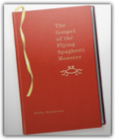
Revolution In The Valley: The Insanely Great Story of How the Mac Was Made
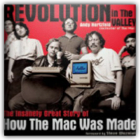
Operation Avalanche: The Salerno Landings 1943

Churchill's Bodyguard

Wolfhound Century

God's Englishman

Riddley Walker

The Age of Capital, 1848-75

The Age of Empire, 1875-1914

The Age of Revolution: Europe, 1789-1848

Godel, Escher, Bach: An Eternal Golden Braid, 20th Anniversary Edition

Hoggy: Welcome to My World: The Peculiar World of Matthew Hoggard

The ZEN of CSS Design: Visual Enlightenment for the Web

High Fidelity

Fever Pitch

About A Boy

How to Be Good

Polysyllabic Spree

A Long Way Down

Housekeeping Vs. the Dirt: Fourteen Months of Massively Witty Adventures in Reading Chronicled by the National Book Critics Circle Finalist for C

Shakespeare Wrote for Money

Juliet, Naked

: Notes from the Reading Life of a Celebrated Author Locked in Battle with Football, Family, and Time Itself

Stuff I've Been Reading

Brief Candles.

The Perennial Philosophy

Antic Hay (Flamingo Modern Classics)

Brave New World (Flamingo Modern Classics)

Eyeless in Gaza (Flamingo Modern Classics)

Brave New World Revisited (Flamingo Modern Classics)

Island (Flamingo Modern Classics)

Point Counter Point (Flamingo Modern Classics)

Crome Yellow (Vintage Classic)

Ape and Essence

The Devils of Loudon

Those Barren Leaves

Red Strangers (Penguin Modern Classics)

My Father And Other Working Class Football Heroes

Wolves

Steve Jobs: The Exclusive Biography

The Black Jacobins: Toussaint L'Ouverture and the San Domingo Revolution

Beyond A Boundary

Influencing Machine, The

Options: The Secret Life of Steve Jobs - A Parody

Chavs: The Demonization of the Working Class

In this acclaimed investigation, Owen Jones explores how the working class has gone from “salt of the earth” to “scum of the earth.” Exposing the ignorance and prejudice at the heart of the chav caricature, he portrays a far more complex reality. The chav stereotype, he argues, is used by governments as a convenient figleaf to avoid genuine engagement with social and economic problems and to justify widening inequality. Based on a wealth of original research, Chavs is a damning indictment of the media and political establishment and an illuminating, disturbing portrait of inequality and class hatred in modern Britain. This updated edition includes a new chapter exploring the causes and consequences of the UK riots in the summer of 2011. The Stand

Beyond Band of Brothers: The War Memoirs of Major Dick Winters

Beautifully Unique Sparkleponies: On Myths, Morons, Free Speech, Football, and Assorted Absurdities

What is in my book, you ask? (I'm really glad you asked, by the way, because now I get to tell you.) Time travel. Gay marriage. Sportsballing. Futuristic goggles that DO NOTHING. Tiny brags from my publisher, stuff like: "This is an uproarious, uncensored take on empathy, personal responsibility, and what it means to be human." Excessive brags about myself: "An extraordinarily clever, punishingly funny, sharp-tongued blogosphere star, NFL player, husband and father, one-time violin prodigy, voracious lifetime reader, obsessive gamer, and fearless champion of personal freedom." Oh, and also an essay on the Pope's Twitter account. Honestly, if that doesn't draw you in, there's no hope left for humanity. I also give my own funeral eulogy, in case you were hoping I'd go away and die now! So please, join me in the glorious art of windmill tilting by reading this "collection of rousing, uncensored personal essays, letters, and stories" (I have no idea why that's in quotes). Join the herd of Beautifully Unique Sparkleponies. (You know you want to.) Scum of the Earth

Darkness at Noon (Vintage Classics)

Don't Make Me Think!: A Common Sense Approach to Web Usability
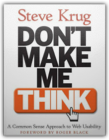
Man Who Knew Too Much: Alan Turing and the Invention of the Computer

On Such A Full Sea

To Kill a Mockingbird

Surely You're Joking, Mr.Feynman!: Adventures of a Curious Character

Female Chauvinist Pigs: Woman and the Rise of Raunch Culture

Apple Confidential: The Real Story of Apple Computer, Inc.

Conspiracy of Paper

1,227 Qi Facts to Blow Your Socks Off

The Iron Heel

The Call of Cthulhu: And Other Weird Stories (Penguin Modern Classics)

Five Days in London: May 1940 (Yale Nota Bene)

Extraordinary Popular Delusions & the Madness of Crowds

Intrusion

A Higher Call: The Incredible True Story of Heroism and Chivalry During the Second World War

Infinite Loop: How the World's Most Insanely Great Computer Company Went Insane

Between Silk and Cyanide

The White Rabbit: The Secret Agent the Gestapo Could Not Crack

Underground, Overground: A Passenger's History of the Tube

Game of Thrones

A Dance With Dragons: Part 1 Dreams and Dust

A Dance With Dragons: Part 2 After the Feast

Fevre Dream

I Am Legend

Nightmare at 20,000 Feet: Horror Stories

American Rust

Embassytown

Iron Council

Miéville (The Scar, Perdido Street Station) weaves his epic out of familiar and heavily political themes—imperialism, fascism, conquest and Marxism—all seen through a darkly cast funhouse mirror wherein even language is distorted and made beautifully grotesque. Improbably evoking Jack London and Victor Hugo, Iron Council is a twisted frontier fable cleverly combined with a powerful parable of Marxist revolution that continues Miéville's macabre remaking of the fantasy genre. —Jeremy Pugh, Amazon.com Kraken

City & the City

Scar

Mobile Web Design

The Health of Nations: Towards a New Political Economy

British Commandos 1940-46

Sicily-Salerno-Anzio, January 1943-1944
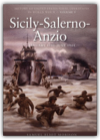
Heaven's Command

Pax Britannica

Farewell The Trumpets

The Venetian Empire: A Sea Voyage

Cop in the Hood My Year Policing Baltimores Eastern District: My Year Policing Baltimore's Eastern District

The Principia: Mathematical Principles of Natural Philosophy

May Contain Nuts

An Utterly Impartial History of Britain:

Netherland

Basil D'Oliveira: Cricket and Controversy

Battle Royale

Animal Farm: A Fairy Story

Nineteen Eighty-four (Essential.penguin S.)

Common Sense

The Rights of Man

The Age of Reason

The Diaries of Samuel Pepys - A Selection (Penguin Classics)

Tom Clancy's Net Force

Hidden Agendas (Tom Clancy's Net Force S.)

Night Moves (Tom Clancy's Net Force S.)

Breaking Point (Tom Clancy's Net Force S.)

Tom Clancy's Net Force 5: Point of Impact

Happyslapped by a Jellyfish: The Words of Karl Pilkington

Karlology

Mort: Discworld Novel 4: A Discworld Novel

The Spanish Civil War: Reaction, Revolution & Revenge

Inverted World

His Dark Materials Gift Set: "Northern Lights", "The Subtle Knife", "The Amber Spyglass" (His Dark Materials S.)

The Quantum Thief

Century Rain
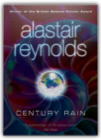
Yellow Blue Tibia: A Novel

By Light Alone

Jack Glass

Jack Glass is the murderer—we know this from the start. Yet as this extraordinary novel unfolds, readers will be astonished to discover how he committed the murders and by the end of the book, their sympathies for the killer will be fully engaged. Riffing on the tropes of crime fiction (the country house murder, the locked room mystery) and imbued with the feel of golden age SF, this is another bravura performance from Roberts. Whatever games he plays with the genre, whatever questions he asks of the reader, Roberts never loses sight of the need to entertain. Filled with wonderfully gruesome moments and liberal doses of sly humor, this novel is built around three gripping HowDunnits that challenge notions of crime, punishment, power, and freedom. The Testament of Jessie Lamb

The Psychopath Test

Plot Against America

Divide and Conquer (Tom Clancy's Op-centre S.)

Don Quixote (Wordsworth Classics)

The Demon-Haunted World: Science as a Candle in the Dark

The Varieties of Scientific Experience: A Personal View of the Search for God

The Catcher in the Rye

Liars and Outliers: Enabling the Trust That Society Needs to Thrive

Vicious

Bravest of the Brave: True Story of Wing Commander Tommy Yeo-Thomas - SOE Secret Agent Codename, the White Rabbit

The Book of Dave: A Revelation of the Recent Past and the Distant Future

The Revolution Was Televised: The Cops, Crooks, Slingers and Slayers Who Changed TV Drama Forever

These are the subjects of 12 shows that started a revolution in TV drama: The Sopranos. Oz. The Wire. Deadwood. The Shield. Lost. Buffy the Vampire Slayer. 24. Battlestar Galactica. Friday Night Lights. Mad Men. Breaking Bad. These 12 shows, and the many more they made possible, ushered in a new golden age of television — one that made people take the medium more seriously than ever before. Alan Sepinwall became a TV critic right before this creative revolution began, was there to chronicle this incredible moment in pop culture history, and along the way “changed the nature of television criticism,” according to Slate. The Revolution Was Televised is the story of these 12 shows, as told by Sepinwall and the people who made them, including David Chase, David Simon, David Milch, Damon Lindelof and Carlton Cuse, Vince Gilligan and more. The Wars of the Roses

Treasure Islands: Tax Havens and the Men who Stole the World

The Hyperion Omnibus: "Hyperion", "The Fall of Hyperion" (Gollancz SF S.)

The Terror

The Corner: A Year in the Life of an Inner-city Neighbourhood

The Rediscovery of Man (S.F.Masterworks S.)

Playing Hard Ball: County Cricket and Big League Baseball

What Sport Tells Us About Life

Luck: What it Means and Why it Matters

Paper Prototyping: Fast and Simple Techniques for Designing and Refining the User Interface
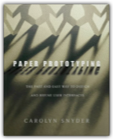
Secret Agent 666: Aleister Crowley, British Intelligence and the Occult

The Junk Food Companion: The Complete Guide to Eating Badly

Vive La Revolution

Snow Crash

The Diamond Age

In the Beginning...Was the Command Line

No one could read a Stephenson novel and not recognise his frighteningly powerful grasp of social and political history, and of technology that underpins all his stories. Read the liner notes on Snow Crash and you'll realise this is a man who probably considers Apple's Human Interface Guidelines to be soothing bedtime reading. In the Beginning...Was the Command Line gives Stephenson an opportunity to flex his own non-fictional muscles. Part memoir, part developer's history of operating systems, it trawls through CLIs (command line interfaces) such as MS-DOS to GUIs (graphical user interfaces), the then-as now—revolutionary Macintosh OS, and everything since: Windows 98 (note: purist Stephenson doesn't even consider this an OS), Unix and Linux. By the end of his enlightening, exhaustive elucidation of these and other TLAs, you too may suffer the subject of one of the book's final chapters: "geek fatigue". Not to worry—if there's one thing of which you can be certain it's that Stephenson never takes himself, or his subject, too seriously, and anything that cites Dilbert cartoons and H. G. Wells as source material has got to be a giant step forward. —Liz Bailey Cryptonomicon

The Big U

Quicksilver

Quicksilver, "Volume One of the Baroque Cycle", backtracks to another time of high intellectual ferment: the late 17th century, with the natural philosophers of England's newly formed Royal Society questioning the universe and dissecting everything that moves. One founding member, the Rev John Wilkins, really did write science fiction and a book on cryptography—but this isn't history as we know it, for here his code book is called not Mercury but Cryptonomicon. And although the key political schemers of Charles II's government still have initials spelling the word CABAL, their names are all different... While towering geniuses like Newton and Leibniz decode nature itself, bizarre adventures (merely beginning with the Great Plague and Great Fire) happen to the fictional Royal Society member Daniel Waterhouse, who knows everyone but isn't quite bright enough for cutting-edge science. Two generations of Daniel's family appear in Cryptonomicon, as does a descendant of the Shaftoes who here are soldiers and vagabonds. Other links include the island realm of Qwghlm with its impossible language and the mysterious, seemingly ageless alchemist Enoch Root. As the reign of Charles II gives way to that of James II and then William of Orange, Stephenson traces the complex lines of finance and power that form the 17th-century Internet. Gold and silver, lead and (repeatedly) mercury or quicksilver flow in glittering patterns between centres of marketing and intrigue in England, Germany, France and Holland. Paper flows as well: stocks, shares, scams and letters holding layers of concealed code messages. Binary code? Yes, even that had already been invented and described by Francis Bacon. Quicksilver is crammed with unexpected incidents, fascinating digressions and deep-laid plots. Who'd believe that Eliza, a Qwghlmian slave girl liberated from a Turkish harem by mad Jack Shaftoe (King of the Vagabonds) could become a major player in European finance and politics? Still less believable, but all too historically authentic, are the appalling medical procedures of the time—about which we learn a lot. There are frequent passages of high comedy, like the lengthy description of a foppish earl's costume which memorably explains that someone seemed to have been painted in glue before "shaking and rolling him in a bin containing thousands of black silk doilies". This is a huge, exhausting read, full of rewards and quirky insights that no other author could have created. Fantastic or farcical episodes sometimes clash strangely with the deep cruelty and suffering of 17th-century realism. Recommended, though not to the faint-hearted. —David Langford The Confusion

The System of the World

Anathem

Reamde

The Mongoliad: Book One

The Mongoliad: Book Two

The Shield Brethren, an order of warrior monks, search for a way to overthrow the horde, even as the invaders take its members hostage. Forced to fight in the Mongols’ Circus of Swords, Haakon must prove his mettle or lose his life in the ring. His bravery may impress the enemy, but freedom remains a distant dream. Father Rodrigo receives a prophecy from God and believes it’s his mission to deliver the message to Rome. Though a peaceful man, he resigns himself to take up arms in the name of his Lord. Joining his fight to save Christendom are the hunter Ferenc, orphan Ocyrhoe, healer Raphael, and alchemist Yasper, each searching for his place in history. Deftly blending fact and fantasy, The Mongoliad: Book Two captures the indomitable will to survive against immense odds. A note on this edition: The Mongoliad began as a social media experiment, combining serial story-telling with a unique level of interaction between authors and audience during the creative process. Since its original iteration, The Mongoliad has been restructured, edited, and rewritten under the supervision of its authors to create a more cohesive reading experience and will be published as a trilogy of novels. This edition is the definitive edition and is the authors' preferred text. Interface

Roadside Picnic

The Eagle of the Ninth

The Time Machine Did It

Double Wonderful

How I Conquered Your Planet

The Exploding Detective

Dead Men Scare Me Stupid

Earth Vs. Everybody

The Last Detective Alive

The Fifty Foot Detective

The Million Dollar Policeman

Detective Made Easy

Griftopia: A Story of Bankers, Politicians, and the Most Audacious Power Grab in American History

The financial crisis that exploded in 2008 isn’t past but prologue. The grifter class—made up of the largest players in the financial industry and the politicians who do their bidding—has been growing in power, and the crisis was only one terrifying manifestation of how they’ve hijacked America’s political and economic life. Matt Taibbi has combined deep sources, trailblazing reportage, and provocative analysis to create the most lucid, emotionally galvanizing account yet written of this ongoing American crisis. He offers fresh reporting on the backroom deals of the bailout; tells the story of Goldman Sachs, the “vampire squid wrapped around the face of humanity”; and uncovers the hidden commodities bubble that transferred billions of dollars to Wall Street while creating food shortages around the world. This is essential reading for anyone who wants to understand the labyrinthine inner workings of this country, and the profound consequences for us all. The Hobbit

The Fellowship of the Ring

The Two Towers

The Return of the King

The Silmarillion

"Bones, Rocks and Stars": The Science of When Things Happened

Ice, Mud and Blood: Lessons from Climates Past

Shaun Udal - My Turn to Spin: The Incredible Story of a Cult Cricketer

Twenty Thousand Leagues under the Seas

Pavilion to Crease... and Back

Infinite Jest

What Makes This Book So Great: Re-Reading the Classics of Fantasy and SF

Serenity: The Official Visual Companion
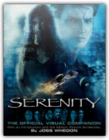
Serenity

How Mumbo-jumbo Conquered the World: A Short History of Modern Delusions

A Very British Killing: The Death of Baha Mousa

This book tells the inside story of these crimes and their aftermath. It examines the institutional brutality, the bureaucratic apathy, the flawed military police inquiry and the farcical court martial that attempted to hold people criminally responsible. Even though a full public inquiry reported its findings into the crimes in September 2011, its mandate restricted what it could say. The full story, told with the power of a true-crime exposé, shows how this was not simply about a few bad men or 'rotten apples'. It shines a light on all those involved in the crime and its investigation, from the lowest squaddie to the elite of the army and politicians in Cabinet. What it reveals is devastating. How to Survive a Robot Uprising

Death of the Scharnhorst

The Fifth Head Of Cerberus (Millennium SF Masterworks S)

Severian Of The Guild: The Book Of The New Sun: With Shadow of the Torturer AND Claw of the Conciliator AND Sword of the Lictor AND Citadel of the Autarch

An Evil Guest

A Vindication of the Rights of Woman

Generation Kill

The Chrysalids

The Midwich Cuckoos

The Kraken Wakes

The Day of the Triffids

The History of Hampshire County Cricket Club

We (Penguin Twentieth Century Classics S.)

The Twilight Zone Companion

The Book Thief

Nine-year-old Liesel lives with her foster family on Himmel Street during the dark days of the Third Reich. Her Communist parents have been transported to a concentration camp, and during the funeral for her brother, she manages to steal a macabre book: it is, in fact, a gravediggers’ instruction manual. This is the first of many books which will pass through her hands as the carnage of the Second World War begins to hungrily claim lives. Both Liesel and her fellow inhabitants of Himmel Street will find themselves changed by both words on the printed page and the horrendous events happening around them. Despite its grim narrator, The Book Thief is, in fact, a life-affirming book, celebrating the power of words and their ability to provide sustenance to the soul. Interestingly, the Second World War setting of the novel does not limit its relevance: in the 20th century, totalitarian censorship throughout the world is as keen as ever at suppressing books (notably in countries where the suppression of human beings is also par for the course) and that other assault on words represented by the increasing dumbing-down of Western society as cheap celebrity replaces the appeal of books for many people, ensures that the message of Marcus Zusak’s book could not be more timely. It is, in fact, required reading — or should be in any civilised country. —Barry Forshaw |


Tom Phippen
Collection Total:
2065 Items
2065 Items
Last Updated:
Apr 19, 2014
Apr 19, 2014

 Made with Delicious Library
Made with Delicious Library